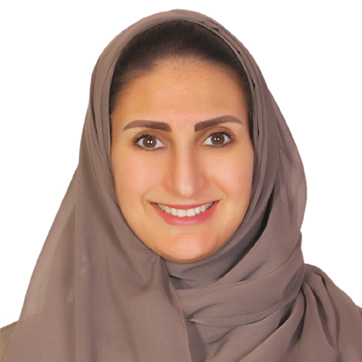
Nadia AlAmoudi is the current business development advisor at Ministry of Energy, Industry and Minerals resources. Nadia was the general manager of the Economic Programs Department at Economic Affairs Deputyship with the Ministry of Economy and Planning for almost 3 years. She has an interest in global and local economic affairs. She also has made a multitude of contributions towards moderating dialogue between groups and entities related to societal and economic development. Nadia has MBA and has held leadership positions in national development and human development. She has also served as a university lecturer on a number of subjects in management and economics. Nadia Alamoudi held various positions in Jeddah Chamber of Commerce. She has been responsible for government files related to the issue of women's participation in national development. Furthermore, Nadia has served as Director of the Research and Studies Center in Jeddah Chamber. Nadia represented Saudi Arabia in various training programs on leadership and empowerment of women in the private and government sectors in Japan, the United States and other countries. Nadia is a Vice-Chairman of the National Statistics Committee at the Council of Saudi Chambers, and was a member of the Women Employment Coordination Council.
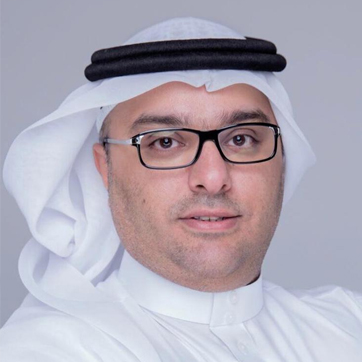
Ibrahim Saleh Alsuwail has been the deputy governor of Saudi Arabian General Investment Authority (SAGIA) since July 2017. Ibrahim Alsuwail obtained a bachelor’s degree in international business, MBA from INSEEC university in Paris. Later, he attended Alyamama university and obtained an Executive master’s degree in business administration in 2018. Subsequently, he obtained a high diploma in entrepreneurial and small business operations from Washington State University. He also attended several strategy courses from the London Business School, and Harvard Business School, in addition to finance & marketing courses from Insead Business School, technology course from MIT, & Leadership course from Ashridge Business School. He started his career in 1998 working for Joannou and Paraskevaides Overseas Ltd. Co., after which he joined Silki La Silki National Telecommunication Co. Ltd as development and logistics executive. Alsuwail remained associated with the Saudi Telecom Co. (STC) for 16 years in different capacities before moving to SAGIA. He started his stint at the STC as a customer care manager in 2001. He also worked as a commercial quality assurance director, sales director, sales general manager and direct sales channels general manager. He is a member of the board of directors of STC Specialized Telecommunications company, as well as the Saudi Port Authority and Electricity & Cogeneration Regulatory Authority.
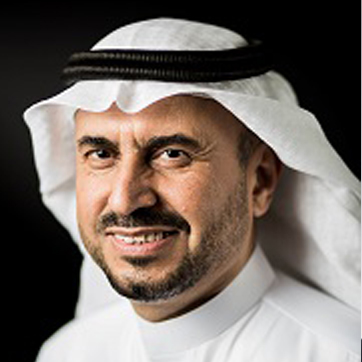
Mr. Ahmad Al-Sa'adi was appointed senior vice president of technical services on December 16, 2015, effective January 1, 2016. Mr. Al Sa'adi heads Saudi Aramco Engineering Services, Project Management, Procurement & Supply Chain Management, and Information Technology. In this capacity, he directs approximately 7,500 employees and oversees more $100 billion in capital expenditures. Mr. Al Sa'adi also manages the direction of Saudi Aramco's corporate, environmental, and occupation health policies and provides guidance to management on the impact of environmental trends. In July, 2010, Ahmad became the vice president of Gas Operations, headquartered in 'Udhailiyah, where he led a complex organization comprising seven gas processing centers with a capacity of 12 billion SCFD. Prior to that, Mr. Al Sa'adi was vice president of Pipelines, Distribution, and Terminals, which operated more than 50 facilities throughout the Kingdom. He was responsible for the transportation of oil, gas, and domestic fuel distribution through bulk plants and air fueling units, and for Kingdom crude exports through terminals. Mr. Al Sa'adi held the position of chief engineer of Saudi Aramco; and prior to that, president and CEO for Aramco Gulf Operations Company (AGOC), and chairman of the Executive Committee, providing policy and direction to Al-Khafji Joint Operations. He served in a supervisory capacity - domestically and internationally - over a multitude of engineering, refining, and project management fields. Ahmad is currently a Board Member of Pandlewood Corporation N.V. and National Industrial Cluster Development Program, and serves as chairman of Saudi Aramco Mobil Refinery (SAMREF), the Sadara Chemical Company, and International Maritime Industries. He is also a member of the Saudi Aramco Management Committee. Mr. Al Sa'adi joined Saudi Aramco in 1981 after earning his bachelor's degree in chemical engineering from KFUPM. In 2000, he completed the Management Development program at Harvard Business School.
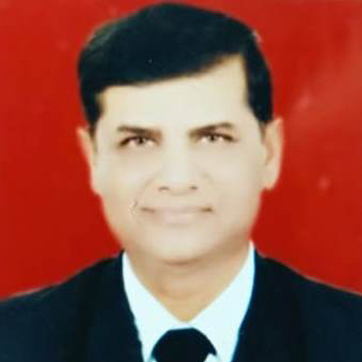
Lt Gen Anjan Mukherjee was commissioned in the Indian Army in 1973. He has worked on artillery guns of British, Russian and Indian origin. He has served in all the operational sectors where Indian Army is in action. He has been part of Strategic Thinking community in India. He was senior Faculty Member of National Defence College (NDC), New Delhi. As faculty member of the NDC he visited Tanzania, Botswana, Sri Lanka, Italy, Bhutan, Netherland, UK and other countries where he spoke on strategic issues concerning security challenges in those regions and exchanged his views with top military and civilian leadership in these countries. In India, his contribution towards conceptualizing and manufacture of India's first indigenous hi-tech 155mm 45 calibre medium artillery gun system named 'Dhanush' from special steel to final artillery gun production is well known. He is presently working as Consultant to the Ordnance Factory Board (OFB), Ministry of Defence, Government of India. He did his PhD in artillery weapon systems modernization, with stress on indigenous manufacture. After retirement he was Consultant to Defence Research and Development Organization (DRDO) and later joined the Ordnance Factories Board. Thus he has deep all round knowledge and experience of strategic, operational, R&D and manufacturing issues in defense sector. He was Director General of Indian Artillery in the rank of Lt General. He has been awarded twice by the President of India for his exceptional
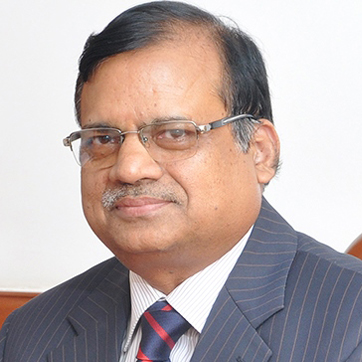
Mr. R. K. Goyal, an Engineering Graduate from BITS, Pilani and M.B.A., is currently the Managing Director of Kalyani Steels Ltd, Pune. Mr Goyal is also Chairman of Saarloha Advanced Materials Pvt Ltd and Director of Kalyani Investment Company Ltd, Pune. Currently, Mr. Goyal is responsible for overall management of Kalyani Steels Ltd, Saarloha Advanced Materials Pvt Ltd and Kalyani Investment Company Ltd. Before joining Kalyani Steels Ltd, Mr Goyal was the Director, Strategy & Corporate Affairs at Jindal Stainless Ltd and was responsible for overall Growth Strategy Formulation, Mining Business, Strategic Alliances, Mergers & Acquisitions, Indirect Taxation and monitoring performance of all companies in the Jindal Stainless Ltd Group. In an industry experience of more than 38 years, Mr Goyal has travelled to more than 60 countries and delivered presentations and lectures at various international and national forums. Mr Goyal has been awarded and honoured by various bodies such as EEPC (Engineering & Export Promotion Council), CONCOR, ECGC (Export Credit Guarantee Corporation of India Limited), CEO India Forum, Construction World (CW) Magazine etc.. Further, under his leadership, Kalyani Steels Ltd has received 'Secondary Steel Sector Award' from Ministry of Steel, Govt. of India (Sep, 2018), 'Emerging Steel Company of the Year 2017' award by Steel Users Federation of India (SUFI) (Dec, 2017) and 'Silver Certificate of Merit' by Frost & Sullivan & FICCI's India Manufacturing Excellence Awards (Nov, 2017). Mr Goyal is also associated with various forums and platforms such as International Stainless Steel Forum, CII, Karnataka Iron & Steel Manufacturers' Association (KISMA), Alloy Steel Producers Association (ASPA) etc. He is also a Member of the Advisory Board of Centre of Excellence in Steel at IIT Bombay, Member of CII Steel Committee.
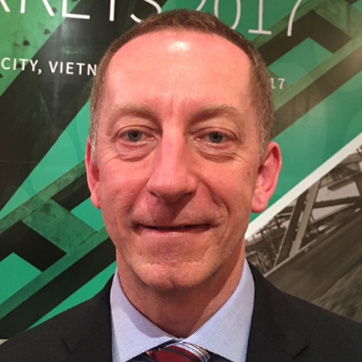
Paul is a director and co-founder of Kallanish, which he helped to create after working for Steel Business Briefing as General Manager for Asia. With the co-founders he felt there was a gap for simple, good quality journalism and market intelligence combined with a focus on listening to customer needs. Kallanish aims to put the customer at the forefront of everything we do. Previously Paul was a Commercial Director and negotiated strategic alliances for blue chip companies in the payments industry. He also hold an MBA from Cranfield School of Management. Paul is based in Kallanish's London HQ and previously lived in Paris and Shanghai. He speaks fluent French and conversational Mandarin.

HE Eng. Saeed Ghumran Al Remeithi is Emirates Steel's Chief Executive Officer. He is a UAE national and holds a B.Sc. in Electrical Engineering from California State University. Mr. Al Remeithi has over 17 years of experience in the steel industry covering all aspects of the business. He successfully led Emirates Steel to solidify its position as the leading steel producer in the GCC region, to embed an operational culture based on best business practices, draw up and deliver ES' strategy and business development plans to transform the firm into a world class steel producer, maintain a high level of competitiveness and achieve set EBITDA, Net Profit and Emiratization targets for each year since becoming the firm's CEO in 2011. He is currently focused on leading the company into its next phase of business development and to realize its objectives as an integral part of Abu Dhabi 2030 vision with emphasis on Emiratization and developing a local pool of expertise for the steel industry. Mr. Al Remeithi is the Chairman of the Economic Committee for the World Steel Association, the first Arab individual to hold this position.
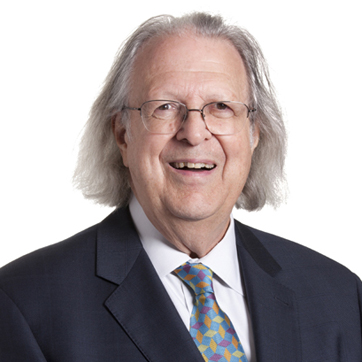
Peter F. Marcus, a steel securities analyst, is founder of World Steel Dynamics and a consultant to the steel industry. He began his career on Wall Street in 1961 with L.F. Rothschild & Co. In early 1999, after 28 years at PaineWebber, Peter with his World Steel Dynamics staff formed their own separate and independent company. Peter graduated from Cornell University in 1960 and received a MBA from New York University in 1965.
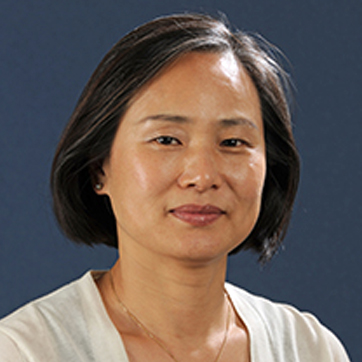
Dr Nae Hee Han joined worldsteel as the Chief Representative of the Beijing office in 2006 and held the position till October of 2014. Since January 2007, Dr Han has been also Director, Economic Studies and Statistics. Before Joining worldsteel, she worked for POSCO Research Institute for 15 years, where her last position was Director of China Study Center. She got her doctoral degree in Economics from the Pennsylvania State University. She is a citizen of Republic of Korea and currently lives in Brussels.
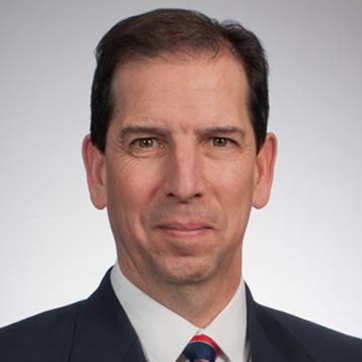
Fernando Oliveros is Managing Director at AlixPartners since 2014, in its Dubai, Abu Dhabi and Riyadh offices. He has 25+ years of consulting experience and 10+ years of experience in industry positions, including manufacturing, engineering, robotics and automation.He has worked on Steel, Specialty Metals and Aluminium players in Europe and Middle East from casting to hot, cold rolling, and finished products, including working at final destination industries like railways (bars for rails)), construction (rebar) and automotive (rolled). His experience includes strategy, operational improvement, financial and operational turnaround, and corporate finance, including M&A and post-merger integration. This experience has been developed working with clients in more than 25 countries across Europe, South and North America, Middle East and North Africa, and Asia. Fernando has a MS. Solid State Physics degree from Madrid Complutense University and an MBA from IESE in Madrid. He is and has been Board member of several companies in Spain and India (Acuntia, Cirta Emissions, Tecverge). He is Associate Professor at ESCP Business School (Madrid) where he teaches Valuation of Energy Assets and has served as Associate Professor to IE Business School on Corporate and Competitive Strategy (Sao Paolo, Madrid)
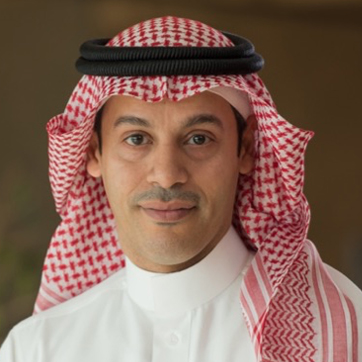
Al-Saleem is the Chief Executive Officer (CEO) of International Maritime Industries. Previously, Al-Saleem led the multi-company JV project team during the feasibility and commercial development stages as Saudi Aramco's JV Project Development Director. With more than 23 years' experience at Saudi Aramco, Al-Saleem has led high performing teams in New Business Development, Corporate Planning, and Investment Analysis for Upstream and Downstream Facilities. In 2014, he led the Corporate Portfolio Analysis and Decision Support function at Saudi Aramco responsible for Corporate Decision Support, Enterprise Risk Management, Portfolio Analysis, and Economic Evaluation Guidelines. From 2010-2014, Al-Saleem was responsible for Capital Planning and Evaluation for Upstream and Downstream Investments. A 1994 graduate of the King Fahad University of Petroleum & Minerals, Saudi Arabia, (Bachelor in Mechanical Engineering), Al-Saleem also received a Master's in Mechanical Engineering from the University of Portland, USA, in 2001.
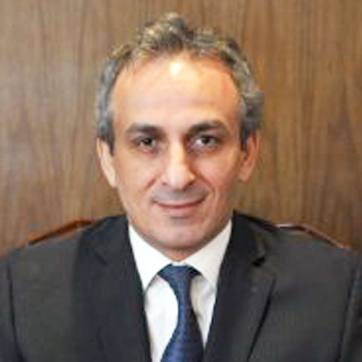
Mr. Hamdan has over 26 years international experience in R&D, product design, automation, manufacturing, business turn around and development. Over the last 12 years Mr. Hamdan's area of focus has been in mining and metals. Mr. Hamdan is currently the Senior Director at the National Industrial Cluster Development Program. In addition to developing the cluster strategy, Mr. Hamdan is responsible for growing the metals industrial base in Saudi Arabia through expanding current manufacturing operations and development of new manufacturing operations. Prior to his current post, Mr. Hamdan oversaw for electric motors and power generators product development and global operations at RBC Corporation in the USA. Mr. Hamdan has also headed R&D and New Product Development of semi-conductor high speed test systems globally for Robotic Vision Systems, Inc. in the USA and led Engineering and Machine Design at DLS Engineering & Automation, corporation in the USA.
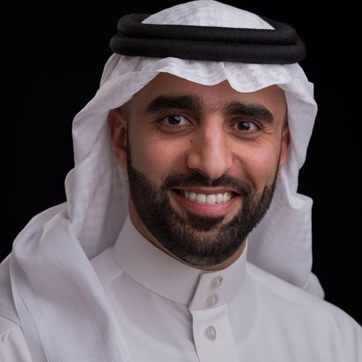
Abdulrahman is the managing director of LCGPA. He is an executive who brings a longstanding experience of strategy consulting for public and private sectors coupled with industrial experience in oil & gas sector during his previous jobs. He has an extensive experience in business strategy, supply chain development, operational & capital budgeting, workforce planning, and performance measurements. He started his successful journey at Saudi Aramco working on several assignments related to upstream business strategy, oil operations, capital projects, and systems integration. As a Business Strategy Manager at Accenture, Abdulrahman has worked with numerous energy clients (IOCs and NOCs) on local content development, supply and demand analysis, and integrated strategic & business planning focusing on oil, gas, and petrochemical sectors across Middle East and UK. In 2016, Abdulrahman decided to join the forces in executing Vision 2030 and became a civil servant in Saudi Government. He has been an advisor at the Ministry of Economy Planning, and now is part of the founding team of LCGPA leading the establishment phase of the authority. Abdulrahman holds a bachelor degree in Information Systems and a Master degree in Business Administration.
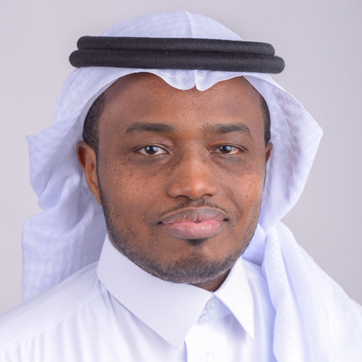
Engineer Fuad Mosa is Vice President of SABIC's Local Content & Business Development Unit – an arm of the company created to develop local content and investments in the Kingdom according to KSA 2030 Vision. In addition, he is currently the CEO of Sabic Investment & Local Content Development Company.He holds a Bachelor's Degree in Chemical Engineering from KFUPM in Dhahran, a Master's Degree in Chemical Engineering from KSU in Riyadh and an MBA degree from Thunderbird School of Management in Arizona, USA.He has over 22 years of experience in different fields related to petrochemical industry. He contributes in more than 35 patents during his earlier years of experience in developing deferent Technology for SABIC. He serves as board member at deferent companies, centers and institutions. Before appointed to his current role, he was serving as a General Manager of SABIC Global Chemical Technologies.
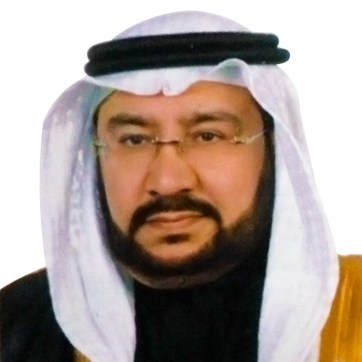
With more than 30 years of experience in Steel industries, He was the president of Hadeed & VP of Metal SBU SABIC then Middle East VP of ArcelorMittal and then CEO of SULB – Bahrain in Saudi Arabia and Bahrain. Last Job was the CEO of JESCO. Mr. Al-Jabr was the Chairman of Arab Iron & Steel Union. He was Board member of Alba & Garmco in Bahrain . Currently, he is advisor for several industrial companies and organizations and is Vice Chairman of National Committee for Steel Industry which embedded from the Council of Saudi Chambers.
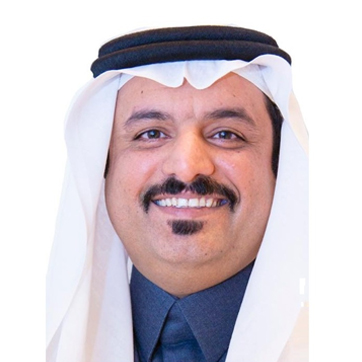
With more than 30 years of experience in Steel industries, He was the president of Hadeed & VP of Metal SBU SABIC then Middle East VP of ArcelorMittal and then CEO of SULB – Bahrain in Saudi Arabia and Bahrain. Last Job was the CEO of JESCO. Mr. Al-Jabr was the Chairman of Arab Iron & Steel Union. He was Board member of Alba & Garmco in Bahrain . Currently, he is advisor for several industrial companies and organizations and is Vice Chairman of National Committee for Steel Industry which embedded from the Council of Saudi Chambers.

Ibrahim Almojel is the Director General of the Saudi Industrial Development Fund. He sits on multiple boards including Samba Financial group, Raidah Investment Company (overseeing the public pension fund), Awqaf Investment Company and the Arab mining company. Previously he worked at Saudi Aramco in multiple functions including corporate strategy and Saudi Aramco energy ventures. Most recently he was the CEO of Wisayah the investment management arm of Saudi Aramco. He completed his BS in Electrical Engineering from Vanderbilt University, MS in Electrical Engineering and PHD in Management Science and Engineering from Stanford University.
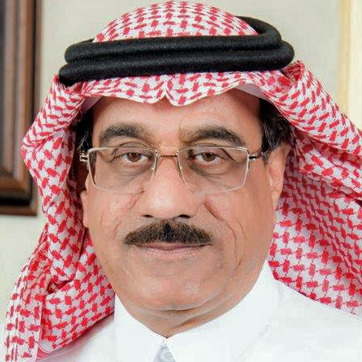
Hussain graduated with a degree in Geology from King Fahad University of Petroleum & Minerals in 1984, at which point he commenced his career with Saudi Aramco. Comprehensive multi-disciplinary work and management experience in exploration, geology, petrophysics, geophysics, drilling operations and reservoir management. Played vital role in managing major strategic projects at Aramco, Rub-Alkhali joint ventures gas exploration program, exploration technical Services projects and Aramco hydrocarbon resource assessment strategy. Breadth of knowledge in the field of resource and reserve management. At Saudi Aramco, he led the concept generation and process management effort to add hydrocarbon reserves from extensions and discoveries. Hussain, served as international distinguished lecturer at the SPE (Society of Petroleum Engineers) in 2005. He was also member of SPE/AAPG/WPC Oil and Gas Reserve Committee. Attended the Advanced Executive Management Program in 2011 with Wharton school of University of Pennsylvania. Hussain M. Al-Otaibi is revered as a champion of Professional Societies in the Middle East. Active member of The American Association of Petroleum Geologist (AAPG) for more than 32 years. Established The AAPG Middle East Region and was first president during (2009-2011). Member of AAPG Executive committee for 6 years (2007-2013). Received AAPG's Distinguished Service Award in 2014 and in 2016 the Honorary Member Award for his distinguished service and devotion to the science and profession of petroleum geology community. He established the first Geology Club at King Fahad University 1983 and later on, the Dhahran Geoscience Society (DGS), first professional society in the Middle East, in 1987. Currently he is leading the Saudi Geological Survey.

Stig Nordlund is the GM Sales & Marketing of Bahrain Steel. Bahrain Steel is a 100% subsidiary of Foulath Holding. Foulath Holding is an investment vehicle focused on investing in the steel industry in the GCC region. Stig Nordlund has more than 30 years' experience in sales & marketing of iron ore pellets in Asia, the Middle East, and Northern Europe. Before joining Bahrain Steel he held various key positions for more than 30 years with LKAB who is the second-largest pellet exporter in the world. The last position Stig held at LKAB was VP Marketing & Sales MENA. He is holding long term relationships with all renowned steel producers in the MENA region. Stig comes with a very strong knowledge of the pellets business from production, accounting, finance, human resources, safety, to marketing and sales. He has operated at the main plants and with proximity and intimacy to the mines and mills, as well as having worked in the field and engaging with clients worldwide. Stig has developed a good understanding of the global landscape of the iron ore/pellets business along with a good knowledge of the commercial landscape. Stig was born and raised in Hakkas - Northern Sweden. He completed his Bachelor of Science in Business Administration from the University of Umea, Sweden.
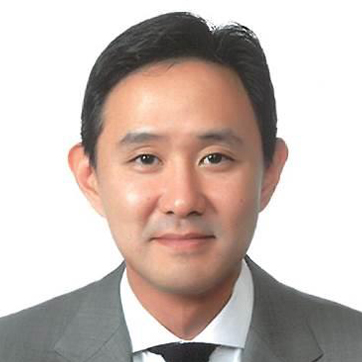
Yun Choi is the CEO of Korea Zinc Company, the world's leading non-ferrous metals processing company with worldwide operations. Prior to taking up the executive roles within Korea Zinc, he was also the CEO of Sun Metals Corporation, a zinc refinery in North Queensland, Australia.
Yun has been responsible for providing visionary leadership for the company's energy and business improvements, including a major expansion at the refinery to implement new technology, a construction of a 125MW solar farm and a 270MW LNG power plant, and as well as the implementation of transport and stevedoring businesses within Australia. He also served as a leader in developing a steel scrap recycling business that is already in operation in Korea and the next plant in Vietnam will be commissioning soon.
He has extensive business and commercial knowledge of metals refining and mining, with experiences in running and developing overseas resource projects in multiple countries and forming strategic partnerships in international commodities markets.
Before he joined the company he practiced as an attorney at law in a renowned New York law firm, Cravath, Swaine & Moore LLP, having completed a Juris Doctorate Degree in the Columbia University School of Law.

Having graduated from university in England's steel city of Sheffield, Adam was destined to end up in a career related to the steel industry. He has worked at Kallanish since 2014 as an editor for The Middle East and Turkey, as well as CIS and Eastern Europe, contributing his experience gained from five years in Dubai of the vibrant and fast-growing Middle Eastern and Turkish markets. Adam regularly attends events in the Middle East and Europe, moderating and speaking at some of them. He was previously steel editor at Platts in Dubai and before that Central and Eastern European reporter for Steel Business Briefing in London. Adam prides himself on providing friendly, informative and accurate journalism. He is currently based in Frankfurt and speaks fluent Polish and intermediate German.
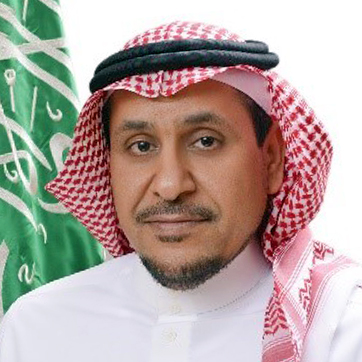
Eng. Khalid Al-Salem is The Director General at Saudi Authority for Industrial Cities and Technology Zones "MODON" since September 2017 and Acting Deputy Minister for Industry at Ministry of Energy Industry And Minerals Saudi. Prior joining "MODON" Eng. Al-Salem was the President of the National Industrial Clusters Development Program (NICDP); and before being the president of (NICDP), he was the Vice President of Plastics and Packaging wherein he supported the implementation of chemicals and plastics downstream industries in Saudi Arabia; and to lead the initiation of pharmaceutical cluster development. Eng. Al-Salem gained over 22 years of experience working with Saudi Basic Industries Corporation (SABIC). He was involved in different functions in Research and Technology including research work, technology development, plant performance improvement, plant start-ups and customer support. He was also responsible for setting up chemicals and polymers research organizations in KSA, USA, India and China. This period included his successful leadership of commercializing major breakthrough technologies in SABIC Acetic Acid and Linear Alpha Olefins (LAO). Eng. Al-Salem holds a Master's degree in Business Administration from Thunderbird University, USA, and a BSc in Chemical Engineering, from King Saud University, Riyadh, Saudi Arabia.
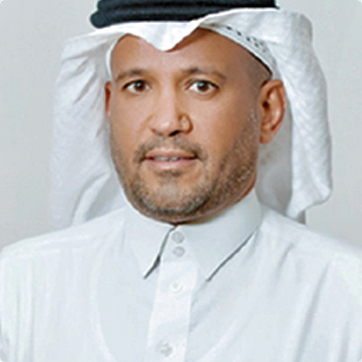
Mr. Osama Hassan Al Afaliq is presently Chairman of the board for the Saudi Contractors Authority. He has been associated in the capacity of Board members with various esteemed organizations including Al Kifah holding, Al Kifah General contracting and Al Kifah real estate development sector. Mr. Al Afaliq has completed his Bachelor of Civil Engineering, King Fahd University of Petroleum and Minerals, 1985. He has also acquired his Master of Business Administration for Executive from King Fahad University of petroleum and minerals 2007
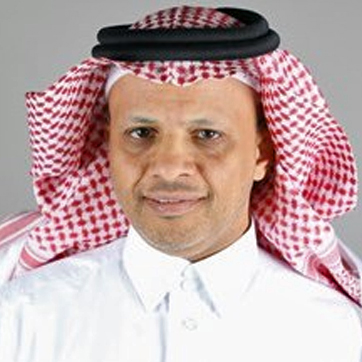
Since May 2016, Eng. Ahmed Al Balawi has been the Director General of the National Project Management, Operations & Maintenance Program (Mashroat). In this capacity, Eng. Ahmad leads Mashroat national pursuit to enable Saudi Arabia's public entities to transform their project delivery, operations and maintenance capabilities based on best global standards while building Mashroat as an organization and a national center of excellence and a point of reference in Project Management, Operations and Maintenance. Prior to his current role, Eng. Ahmed was appointed in 2010 as the General Manager of the Technical Affairs Sector at the Royal Commission in Jubail, with responsibility over Project and Urban Planning, Engineering, Construction and Environmental Protection matters of key projects such Jubail 2 and Ras Al Khair. In 2006, Eng. Ahmed was appointed as the Director of the Engineering Department at the Royal Commission of Jubail where he successfully led the expansion of the Jubail Industrial City, the Residential Districts and the Commercial Port. He also directed the planning and the engineering work for the facilities and utilities of the Royal Commission in Jubail. Eng. Ahmed Al-Balawi joined the Engineering Department at the Royal Commission in Jubail in 1997 as a Mechanical Engineer, where he served in a number of positions of rising responsibilities as a Senior Mechanical Engineer, a Project Engineer and a Head of the Engineering Services Section. Eng. Ahmed earned his B.Sc. Degree in Mechanical Engineering in 1995 from King Fahd University of Petroleum and Minerals (KFUPM) and started his professional career as a Mechanical Engineer in Tabuk Electricity Company.

Alistair Ramsay is Head of Research (Metals & Mining) at Fastmarkets, formerly Metal Bulletin and has been since October 2012. He manages a team that is responsible for analysing and forecasting steel and steelmaking raw materials prices and markets in multiple locations around the world. Besides being directly involved in the short-term subscription services of the analytical team, Alistair is also building some more detailed data services providing clients with fundamental, strategic support through the longer term. Prior to joining Fastmarkets, Alistair spent eight years at CRU in London where he became a principal analyst focused on finished carbon and stainless steel markets.

Dr. Klaus Kleinfeld is an Advisor to His Royal Highness the Chairman of NEOM's Founding Board and a Member of the Founding Board. Prior to this, since October 2017 Dr. Kleinfeld was CEO of NEOM. From 2008-2017, he served as Chairman and CEO of Alcoa/Arconic. Previously, Dr. Kleinfeld had a twenty-year career with Siemens, where he served as CEO of Siemens AG from 2005 to 2007, and prior to this, he was president and CEO of the Siemens Corporation, the company's U.S. arm, representing its largest region. He is a member of the boards of Ma'aden and Fero Labs, an Honorary Senator of the Lindau Nobel Laureates Meeting, an Honorary Trustee of the Brookings Institute, a life time member of the Council on Foreign Relations and a member of the Metropolitan Opera Board. He has been advising multiple US Presidents in various roles, was a member of the Chinese Premier Li's Global CEO Advisory Council, a member of the Major of Shanghai's International Business Leaders Advisory Council and a member of the Foreign Investment Advisory Council to the Prime Minister of Russia, the Chairman of the US Russian Business Council and the Board of Trustees of the World Economic Forum. He served on the board of Bayer, Citibank, Hewlett Packard and Morgan Stanley. Dr. Kleinfeld was born in Bremen, Germany. He holds an MBA from the University of Goettingen and a PhD from the University of Wuerzburg.
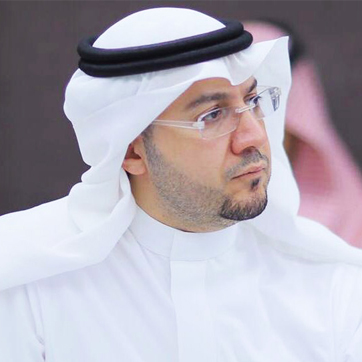
Eng. Nizar Al-Hariri comes with over 25 years of successful track record of business development in both government and private sectors. Experienced across all aspects of business developments from concept to JV set-ups, contractual negotiations and funding arrangements to major project management, strategic planning and organization structuring. Having worked in SIDF for ten years and managed Capital Advisory Group for five, he has a recognized management and consultancy records appointed him to manage the advisory services for the Economic Offset Program, EOP and Public Investment Fund, PIF between 2003 and 2006. Later, Eng. Al-Hariri was assigned as CEO for CAD Middle East for Pharmaceutical Industries. He joined the Industrial Cluster (IC) in 2015 as VP for Pharma and Biotech and currently is IC President. Eng. Al Hariri also represents MEIM in board member in the Saudi FDA. Eng. Nizar Al-Hariri has a BSc in Chemical Engineering from King Saud University and a high degree from the University of Cambridge, Engineering Dept. in Design, Manufacture & Management.
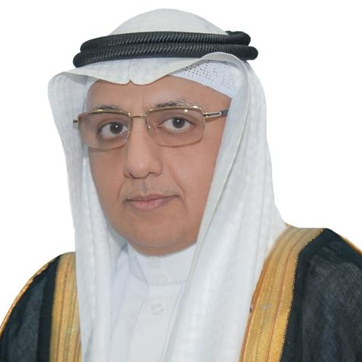
Mr. Gasem Al Maimani is Deputy Governor – Industry, General Authority for Military Industry since July 2019. Prior joining General Authority for Military Industry Mr. Gasem Al Maimani was the CEO for Taiba Holding Company. In his vast and distinguished career Mr. Gasem Al Maimani was involved in various management positions contributing to several Industries like Arabian Cement Company, Ministry of Commerce and Industry, National Industrial Clustering Development Program, Al - Watania for Plastics, Fertilizers Strategy, Economics and Business Support and Polymers SBU Business Planning & Support. He was associated as Chairman and Member of Board of Directors with several companies like SABIC Polymers Turkey Company, Gulf Organization of Industrial Consultations (GOIC), Jubail United Company, Jubail, Yanbu Petrochemical Company (YANPET), Jubail Petrochemical Company (KEMYA), Technical Vocational Training Corporation (TVTC) to name a few. Mr. Gasem Al Maimani holds a Bachelor of Science, Mechanical Engineering with Honors, 1989; KFUPM, Dhahran, Saudi Arabia.
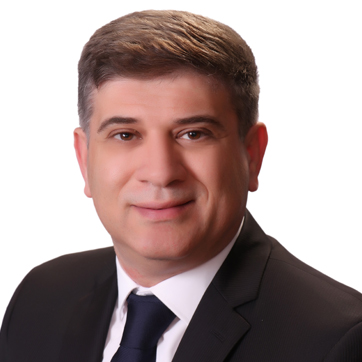
Ahmed has been with Saudi Mechanical industries (SMI) since 1998. Started at the company as a procurement engineer, then became head of Operations in 2006. During his time as Chief Operating Officer (COO), Ahmed, managed several vertical integration and manufacturing expansion projects including the establishment of four metal foundries with a total casting capacity of 40,000 tons per annum. One of SMI's foundries included the largest fully automated ferrous sand-casting foundry in Saudi Arabia with a casting capacity of 6 tons per hour. Ahmad played a key role in developing export markets for SMI in the USA and Europe, supplying 100% Made in Saudi Arabia machined castings and engineered mechanical parts to Original Equipment Manufacturers (OEMs) in the pump and heavy equipment industries. Currently, Ahmed is the CSO of SMI. Also, he is a researcher and a visiting academic at Alliance Manchester Business School in the University of Manchester.
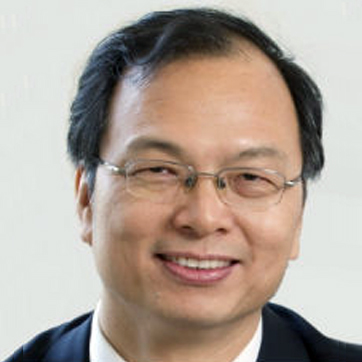
Li Xinchuang has served in many roles previously including those approved by the State Council. He was Professor Senior Engineer, Vice Secretary-General of China Iron & Steel Association (CISA), President and Chief Engineer of China Metallurgical Industry Planning and Research Institute (MPI), and Director of Technical Economics Branch of the Chinese Society for Metals.
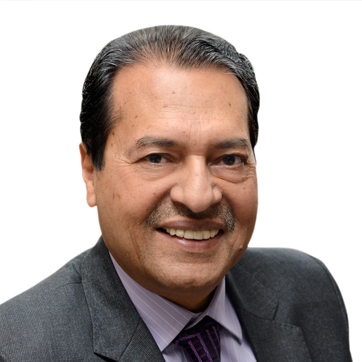
Dr. Bhaskar Chatterjee has been associated with the Steel Industry from the year 2004 when he served in the Government of Odisha as the Principal Secretary for Steel, Mines and Coal. He was also the Chairman of the Odisha Mining Corporation. During his tenure in these positions, he signed a large number of MoU's with the major players in the Steel Industry paving the way for the entry of large scale steel related investments into the State. He is particularly remembered as the person responsible for spearheading the State Government's negotiations with POSCO STEEL of Korea. He has travelled to the sites of many steel production units as well as many mining conglomerations. Subsequently, as Secretary in the Department of Public Enterprises, he was closely associated with the leading Public Sector Steel Enterprises such as SAIL & RINL. As Principal Secretary Steel and Mines in Odisha he was also closely associated with the formulation of National Policies on Steel and Mines. Dr. Chatterjee is also a widely acclaimed management practitioner, theorist and teacher. He has written and lectured over many years on issues of social and sustainable development, corporate responsibility and human resources. He joined the Indian Administrative Service in 1975 and has held many distinguished positions. In 2008-09, he was Principal Adviser in the Planning Commission. Here he was deeply involved with a number of micro and macro-economic measures. He was also a part of the team responsible for shaping India's response to the global economic crisis of 2008. Currently, as the Secretary General of the Indian Steel Association he is involved with a large number of concerns and issues in the Steel Sector. He is in constant interaction with all the Government Ministries and Departments whose policies and programmes impact the Steel Industry. He is also working on initiatives that help to promote the usage of steel in various sectors of our economy. As the Secretary General of the ISA, his primary task is to coordinate the efforts of the Member companies to alert policy makers and decision takers at the National & State levels to current issues and trends and to help promote a conducive and helpful climate for the growth of the Steel Sector as a major and vital contributor to the Indian National Economy.
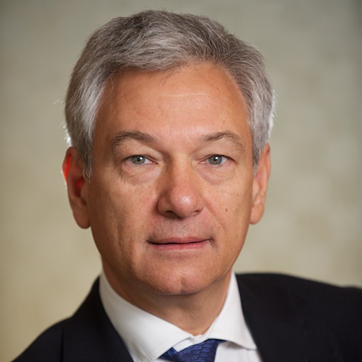
Mr. Vukusic has been with the Group for almost 20 years, and since 2009 heholds the position of the General Manager of Metinvest International SA, Gulf Branch, with the responsibility for all sales of steel products from the biggest metallurgical holding in Ukraine into the GCC Market. Viktor has graduated at the Faculty of Economics, University of Belgrade, Serbia. Most of his vast experience in the world wide steel sector was gained by holding different commercial and managerial positions for the leading Ukrainian steel products supplier. Within the same Group, he has previously held positions of Deputy General Manager in Latin American office, Commercial Director in Swiss office and Export Director in the Ukrainian office. Metinvest International SA, Gulf Branch in GCC was established, organized and managed till date by Mr. Vukusic. They Company has achieved delivering regular quantities to all major GCC ports and have obtained a quality acceptance among various sectors in the GCC market.
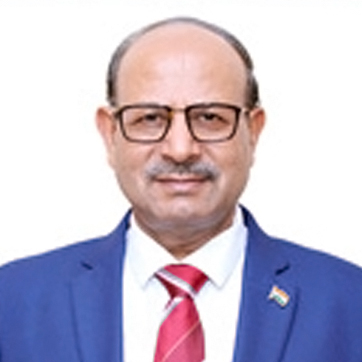
Mr. Vidya Rattan Sharma is Managing Director-Designate for Jindal Steel & Power Ltd. Prior to joining JSPL, he was Group CEO of AbulKhair Group and managing its Steel, Power, Cement & Mining business and previously he was Dy. Managing Director & CEO of Jindal Steel & Power Limited. He has also worked as Executive Director of Ispat Industries Ltd, Joint MD & Whole time Director of Bhushan Group. He also worked in management position with other steel companies overseas including Socialist Steel Limited Libiya, Lloyd Steel Group and Arrasate Steel Spain. Extremely passionate for Steel, Mr. Sharma has given 36 years to the industry while leading multi-locational Steel/Power/Cement/Mining operation, innovative cost effective large steel projects management and was instrumental in bringing in transformation changes of various steel corporate. Mr. Sharma is a graduate in Mechanical Engineering and has completed his Master's in Business Administration from UK.
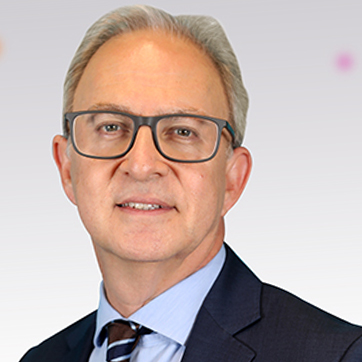
Kareem Shamma is a real estate and construction expert with over 35 years of experience in the industry, primarily in the GCC. He possesses a special flair for managing and driving challenging and iconic projects, all the way from drawing board to reality. Shamma has been at the helm of key projects in hospitality, leisure and mixed-use real estate development. With a Masters degree in Structural Engineering from Imperial College, London, his technical experience began with projects covering bridges & highways, dredging & reclamation and geotechnical engineering, working for many years with global consultants Dar Al Handasah. He moved on to Project Management, honing his commercial and development skills on such iconic projects as Amwaj Islands in Bahrain, and has in recent years held top posts with key real estate developers including the Al Futtaim Group in the UAE. His skill set is as impressive and extensive as his career trajectory. Fluent in Arabic and English, he is a problem solver with a deep understanding of cultural norms and values, having started his career in Saudi Arabia over 30 years ago, working on Riyadh's ring road network. Now he is back in the Kingdom as the CDO of Qiddiya, mandated to deliver, along with the rest of the development team, this capital of entertainment, sports and the arts.
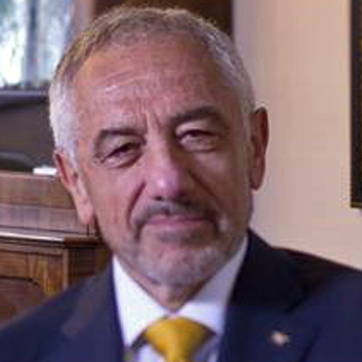
Benedetti Gianpietro started his career at Danieli & C. in 1961. From 1976 was appointed Director to the Research & Development, becoming the Sales Director in 1982. He was appointed Danieli Group Managing Director in 1986, 4 years later he ascended to Group President and CEO. He has been a member of the Board of Directors of Acciaierie Bertoli Safau S.p.A. (Italy) since 1994. Mr. Benedetti has received honorary degrees from three different universities: in 2000 in Mechanical Engineering from the University of Trieste, in 2016 in management engineering from the University of Udine and in 2018 for International Business from the MIB School of Management of Trieste. In June 2006 the National order of Chivalry made him a knight of the Order of Merit of the Italian Republic, the highest ranking honor awarded for "merit acquired by the nation". In 2018 in recognition of his leadership in steelmaking technology and plant building over four decades, he received the Tadeusz Sendzimir Memorial Medal from AIST (Association for Iron & Steel Technology, U.S.A.). In addition, Mr. Benedetti is the holder of numerous patents for steelmaking machines and processes and over 85 inventions have been registered under his name.
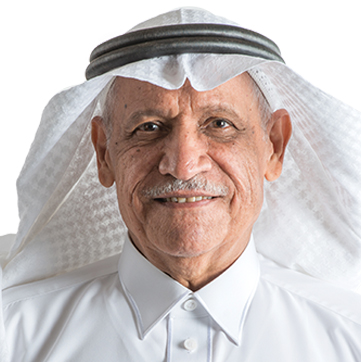
Member of the Board of Amiantit, Riyad Bank, Saudi Paper Manufacturing Company, General Lighting Company and Gulf Chemicals and Industrial Oils Company (GCIR) and Al Bilad Catalyst Company. Chairman of United Lube Oil Company (UNILUBE) in Jubail. Served as Chairman of "Industrialization and Energy Services Company" (TAQA) driving it to establish industrial sectors and services for the petroleum, metals, petrochemicals, electrical and water desalination industries directly and through JVs. And of Eastern Petrochemical Company (SHARQ), Al Jubail Petrochemical Company, (KEMYA) IBN ALBAYTAR Served as Member of the Consultative Committee of the Saudi Supreme Economic Council, Board Member of IBN RUSHD, Saudi Aramco, Saudi Cairo Bank, Royal Commission for Jubail and Yanbu, and the Arabian Industrial Development Company (NAMA) and Saudi Arabian Mining Company – MA'ADEN, Riyadh Chamber of Commerce and Industry. As President and MD of Saudi Amiantit Group, a leading manufacturer of various pipes, tanks, fiberglass insulation and rubber products, restructured the Group to a profitable Joint Stock company, gaining ISO 9000 for the seven JVs. With inception of SABIC helped develop huge petrochemical complexes in Jubail and Yanbu and its operations in Houston, and as the Director General of Projects was involved in the development, design, construction and operation of the 15 joint ventures with US, European and Asian leaders to full operation and profitability. Taught at King Fahd University of Petroleum and Minerals in Dhahran
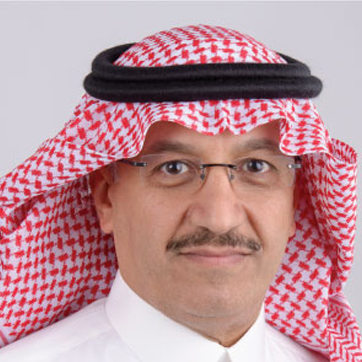
Mr. Yousef Abdullah Al-Benyan is the Vice Chairman and CEO of SABIC and a member of the Investment Committee. Mr. Al-Benyan holds a Bachelor's degree in Economics and a Master's degree in Industrial Management. In addition, he has received several specialized courses in Executive Management. Mr. Al-Benyan is currently the Chief Executive Officer of SABIC. He is also the Chairman of the Boards of Yanbu National Petrochemical Company (Yansab), the Saudi Arabian Fertilizer Company (SAFCO), and Saudi Iron and Steel Company (HADEED). In addition, he assumes leading positions at some national and regional associations and committees, including Chairman of the Gulf Petrochemicals and Chemicals Association (GPCA), and Chairman of the Petrochemical Manufacturers Committee. Furthermore, Mr. Al-Benyan is a member of several national and international business councils, forums, associations and boards, including: the International Business Council of the World Economic Forum; the Global Business Council of the Bloomberg Global Forum; the Board of Directors of the Boao Forum for Asia (BFA); the International Council of Chemical Associations (ICCA); the Royal Commission for Jubail and Yanbu; and the Saudi Ports Authority. Mr. Al-Benyan is also a member of the King Saud University Advisory Board, and a member of the International Advisory Board of the King Fahad University of Petroleum and Minerals. He is a member of the Board of King Abdulaziz City for Science and Technology, the Human Resources Development Fund (HRDF), and the Constituent Council of Future Transportation Sector Development Project. Prior to named the Vice Chairman and Chief Executive Officer of SABIC, Mr. Al-Benyan served as the Executive Vice President, Corporate Finance and CFO. Before that, in 2013, Mr. Al-Benyan was elected to head SABIC's Chemicals business, the company's largest sector, aiming to help SABIC achieves its goal of becoming the preferred global leader in chemicals by 2025. He was also a member of the boards of directors of several companies and committees including the Board of the National Industrial Clusters Development Program, and the Executive Committee of the Riyadh Economic Forum of Riyadh Chamber of Commerce and Industry.
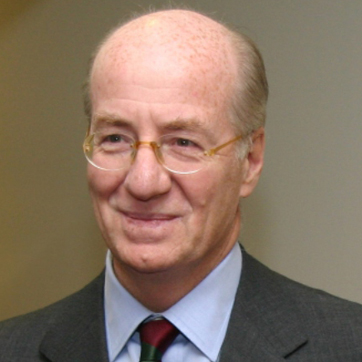
Paolo Rocca is Chairman and CEO of Tenaris, a leading global manufacturer and supplier of steel tubes and related services for the world's energy industry as well as other industrial applications. Listed on the New York, Italian, Buenos Aires and Mexican stock exchanges it has an integrated worldwide network of steel pipe manufacturing, research, finishing and service facilities with industrial operations in North and South America, Europe, Asia and Africa and a direct presence in most major oil and gas markets. He is also Chairman of Ternium, one of the leading steel companies in Latin America, and CEO of the Techint Group, which, in addition to Tenaris and Ternium, has interests in Engineering and Construction, and Energy. Rocca is also member of the Executive Committee of the World Steel Association and of the International Council of J. P. Morgan Chase. Born in Milan in 1952, Paolo Rocca graduated in Political Science from the University of Milan. In 1985 he obtained his PMD (Program for Management Development) at Harvard University.
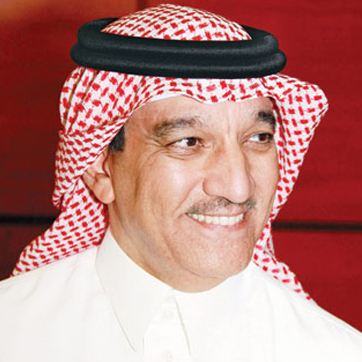
Mr. Talat Zaki Hafiz has over 30 years of working experience in Banking Industry & Financial related areas. In addition, possess economic & business management experience. He started his career in 1977 as lecturer in the accounting department with King Saud University. Thereafter he worked with the National Commercial Bank (NCB) in various positions as Head of Private Banking - Central Region & Head of Commercial Businesses Banking, Assistant Regional Manager, Deputy Regional Manager & Assistant General Manager. He was also associated as a CEO with United Assets Co, an Investment & Real Estate Development Company and Deputy General Manager with Baa- Azeem Trading Co. (FMCG business). Presently he is Secretary General of the Media & Banking Awareness Committee, responsible in enhancing banking knowledge & awareness in Saudi society. He is a Board member with several institutions like Saudi Broadcasting Corporation (SBC), General Organization for Social Insurance (GOSI), Consultant Board of Partnerships & Knowledge Center at Ministry of Finance, Saudi Arabia, to name a few. Mr. Talat Zaki Hafiz has a Bachelor degree in Accounting from King Saud University and has a Master degree in Professional Accounting from University of Hartford in USA .
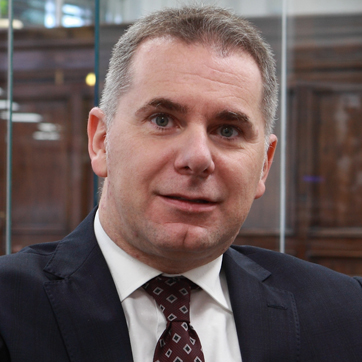
Andrea Diasparro has been graduated as Mechanical Engineering Technician and has more than 20 years of experience in the Metal Industry, with particular reference to the Rolling Mill field, starting his career in the Engineering Department. He has then moved to the Project Office, with extensive experience in Site activities such as Erection & Commissioning, also being in charge of Project implementation as Site Manager. He has gained wide experience in purchasing and procurement of plants and technologies, worldwide. Since 2007, he has joined Danieli & C., working in the proposal department of the Danieli Morgardshammar Bar & Wire Rod mill division, becoming head of the department, being appointed Vice President, Sales. From September 2013 ha has moved to Key Account Management, in charge of Marketing Strategies & Business Development in the Turkish and MENA Regions for all Product Divisions of Danieli Group. Since August 2017 is has been promoted as Technical & Sales Director, in charge of Marketing Strategies & Business Development for Turkey, Africa, Middle East and India for all Product Divisions of Danieli Group.
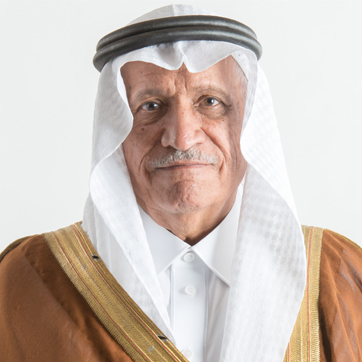
Dr. Abdulaziz Saleh Aljarbou is the Chairman of SABIC and Chairman of the Investment Committee. He began his career as a Professor at King Fahd University of Petroleum and Minerals in 1976, soon after receiving his PhD in Chemical and Petrolem Refining Engineering from the Colorado School of Mines, USA, in the same year. He had earned his Master's and Bachelor's degrees in Chemical and Petrolem Refining Engineering (in 1973 and 1971, respectively) from the same university. Dr. Aljarbou is currently a member of the Board of Directors of both the United Lubricating Oil Company and the Gulf Oil Industrial Company. Prior to assuming his new position in SABIC in 2017, Dr. Aljarbou was the Chairman of the Board of Directors of the Industrialization and Energy Services Company, TAQA (2003-2011). Dr. Aljarbou is recongnized as a pioneering figure in the Saudi Arabian industrial sector. He served as Member of the Advisory Board of the Supreme Economic Council from (1999 to 2010). He was also member of the Board of Directors of Saudi Aramco (1989-1995), Saudi Arabian Mining Company (Ma'aden) during (1997-2011), Malath Cooperative Insurance Company (2007-2010), Chamber of Commerce and Industry (1997-2000) and the Royal Commission for Jubail and Yanbu (1995-2002).
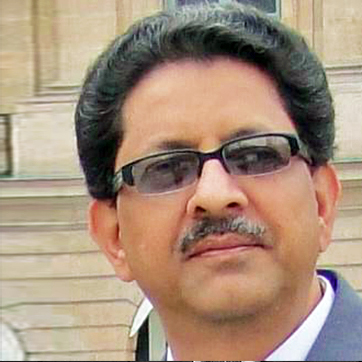
Mr. Sanjay Jayram is a Mechanical & Marine Engineer with an additional Degree in Economics & Export Management. Post his Academics in the year 1985 , he embarked on a career in Sales & Marketing and went on to serve many large Conglomerates in India and Abroad , handling several Middle & Senior Level Professional assignments.. After a decade in Technology / Concept selling of High End Engineering Products and Solutions , he set out to the Middle East for a refresher in Oil Field Services & returned to India in 1996 to join Essar Steel Ltd as Manager ( Business Dev ) for Sales of Value Added Grades of Steel to the Auto, General Engg , Projects , Oil and Gas Industry. During his tenure in Essar which spanned 10 years , he rose to the level of General Manager ( Sales & Marketing ) and has successfully managed the Business in the Markets of West , North and South of India. He joined JSW Steel Ltd in 2006 and is presently the Executive Vice President – Sales & Business Development with additional responsibility of overseeing the Collaboration Agreements with JFE Steel ( Japan ) & Service Centre Joint Ventures with Marubeni Itochu ( Japan ). Mr Sanjay Jayram is a nominated Lead Member from JSW Steel to the WorldAuto Steel & Worldsteel Association. He is a widely travelled professional with over 34 years of Industry Experience and is based out of Mumbai.
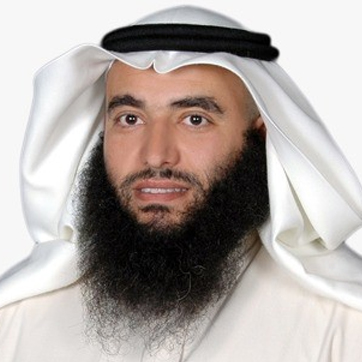
Engineer Osama Abdulaziz Al Zamil was the President of Zamil Group – Riyadh Office. He started his career at SABIC as a marketing researcher and business development analyst. He joined Zamil Group in 2000 as Regional Manager of the Central Region, and General Manager of the HI-TECH Company, then as General Manager of Corporate Business Development (CBD), then Vice President of Corporate Business Development in 2013, then Vice President of Zamil Group Riyadh office in 2016. He is the Chairman to the Board of Directors at Tatweer Co., Vice Chairman of National Power Company and Saudi German Company for Nonwoven Products He is a board member of the following companies: Sahara Petro Chemical Co., Zamil Plastic Industries, Zamil Alpla, Bischof & Klein Middle East Co, Al Waha PC, and Al Yamama Brick Co. Osama is a Board member of Saudi Authority for Industrial Cities and Technology Zones (MODON), Royal Commission for Jubail and Yanbu, Riyadh Chamber of Commerce, Riyadh Economic Forum, he is the Chairman of National Industrial Committee, chairman of the Committee of Industry, Energy and Mineral Resources and as well, he is the former chairman of the Family Business Development Committee, He is former board member of the Small & Medium Enterprises Development Committee of Riyadh Chamber of Commerce, former Board member of the Administrative Committee of the Saudi Energy Efficiency Center and KACST. Osama has attended numerous conferences, including acting as key-note speaker on subjects such as Family Corporates, Entrepreneurship, Industrial Investments, and Petrochemicals. Osama has an MBA from University of Houston 1998, and Systems Engineering, major Industrial Engineering from KFUPM, 1995
Once a major steel importer, considerable investment into steelmaking and processing capacity has seen Saudi Arabia become more self-sufficient. The opening up of exports has resulted in the kingdom competing in the regional and global billet and long products markets, in addition to its already-established flat product exports. There is much potential in Saudi Arabia for further investment into value-added steel production to support the kingdom's drive for economic diversification and cement its place as the regional steelmaking hub. This will require investment into innovative new technology as well as further exploration of the kingdom's resources that could be used to support industrial expansion. International steel producers have the opportunity to lend their expertise and invest in the Saudi steel industry. This session will look at the prospects for Saudi Arabia's steel industry development: investment opportunities in the kingdom, its future relationship with global markets, and Saudi Arabia's potentially-pivotal role in the global iron and steel industry.
Saudi Arabian economic growth and, with it, steel demand, are poised to recover following a challenging few years due to lower oil prices. The kingdom is implementing its Saudi Vision 2030 programme that aims to reboot construction activity and encourage new end-uses for steel. As part of its economic diversification drive, Saudi is supporting the development of local content, which will provide a push for new manufacturing capacities in the kingdom. Buoyed by the recovery in oil prices, the Saudi government's 2019 budget forecasts increased spending versus 2018, with capital spending set to rise 20% to SAR 246 billion. This is likely to give a boost to steel demand. However, with protectionism becoming the new buzzword worldwide following the imposition of US Section 232 tariffs last year, the economic recovery remains fragile and must be properly managed. Also requiring management is the pressure building on Saudi Arabia's natural resources following decades of rapid economic growth. For this reason, the kingdom has developed several strategies, such as the National Environmental Strategy, to promote sustainable development. This session will examine the prospects for Saudi economic growth, the opportunities ahead and how they will be exploited, and also the potential challenges to growth and how they can be overcome.
• Saudi economic outlook
• Saudi government incentives for private sector investment
• Saudi government initiatives for domestic/international partner investment into economic diversification
• Saudi environmental strategies
• Non-oil-based industries of NIDLP program – steel industry towards Vision 2030
• Mining opportunities in Saudi Arabia
• Saudi infrastructure/construction investment outlook
• Saudi foreign trade data collection/accessibility
• Power/gas availability for industrial expansion
Steel demand in the Middle East is expected to continue contracting this year with fiscal consolidation still hampering construction activity, although North Africa should perform better thanks to strong investment. Large government-backed projects in Saudi Arabia and United Arab Emirates, however, are seen boosting Arabian Peninsula steel consumption from 2020 onwards. The Gulf Cooperation Council, once a major steel importer, has increased self-sufficiency in various product categories and raised exports, especially to the fast-growing Asian markets. Economic diversification programmes have been stepped up and are expected to provide new sources of steel consumption in the next decade. In Egypt, meanwhile, improving natural gas availability is spurring increased domestic direct reduced iron and crude steel production to support economic growth aided by the country's structural reforms. In Iraq, the stabilising socio-political situation should allow for the resumption of steel-consuming reconstruction projects that will be watched by regional suppliers. This session will examine the latest developments in the MENA steel industry, including how global factors are impacting the region, and offer an outlook on the challenges and opportunities that lie ahead.
• GCC steel export growth outlook
• Growing intra-regional trade
• Iron ore pellet sourcing issues/raw materials mix developments
• Saudi Vision 2030 potential to boost steel demand
• UAE steel demand post Expo 2020
• Progress on economic diversification – flat steelmaking investments on horizon?
• Iraq reconstruction opportunity for regional steel suppliers
The National Industrial Clusters Development Program (IC), in coordination with key Saudi private and government sector stakeholders, is developing a road map to ensure the sustainability of the Saudi steel sector and foster its growth, in line with the industrialization objectives of Saudi Arabia Vision 2030. This session will highlight the key aspects of the Saudi steel development strategy, including enabling measures and growth opportunities in high value-added steel products. The session will also discuss local content initiatives that aim to support the development of local industries and encourage economic diversification.
• Importance of the steel sector to Saudi Arabia's economy
• Saudi steel industry outlook and growth drivers
• Opportunities in the kingdom's steel sector
• The role of local content initiatives in driving the use of locally-produced steel in KSA
• Required enablers to support investments in the steel sector
Saudi Arabia has long been touted as an excellent location for low-cost direct reduced iron-electric arc furnace-route steelmaking thanks to its plentiful gas reserves and low energy prices. The discovery of iron ore deposits in the west of the kingdom has also raised the prospect of Saudi steelmakers becoming self-sufficient in raw materials. However, increased gas costs and supply shortages have led to DRI production issues in recent years, while tight iron ore pellet availability globally, coupled with a graphite electrodes shortage, has increased raw materials sourcing costs. Will Saudi make increased natural gas available for the steel industry? Is there technology available to mitigate the increased gas and electricity cost? What is being done to improve infrastructure in the kingdom in order to support logistics? This session will discuss all of these topics and more.
• Prospects for natural gas availability for steel industry
• Saudi iron ore resource exploration
• DRI/EAF technology efficiency improvement
• Global DR-grade pellet supply outlook
• Graphite electrode market outlook
• Government support for infrastructure to revolutionize logistics – land/railway/bridge
• Digitalization in steel industry supply chain
• Optimization of supply chain to reduce costs
The Saudi construction industry is the kingdom's largest steel consumer. However, its output has fallen considerably since 2015 when state spending was curtailed due to lower oil prices. This, coupled with new steel capacity coming on line, resulted in a sizeable steel supply surplus in Saudi Arabia, especially for rebar. The outlook for construction has nevertheless improved with an array of huge projects set to break ground as part of Saudi Vision 2030. The most significant of these are Saudi Arabia's economic cities. These will be smart cities that incorporate highly-advanced technology in transport infrastructure, automated government services, internet infrastructure and online education, and construction. There will also be focus on renewable energy, as the kingdom plans to invest in the latest solar power technology to conserve the environment and diversify away from fossil fuels. This session will look at the latest developments in the Saudi construction sector and how they bode for future steel demand.
• Saudi construction sector outlook
• Largest construction sector projects that will drive steel demand
• Progress of new economic cities
• New technologies used in economic cities
• Focus on renewable energy
• Challenges obtaining finance for projects
• Private sector participation in construction projects growing?
• Labour issues in the construction sector
• Developments in pre-engineered building use in construction
Another key facet of Saudi Vision 2030 is the plan to accelerate the kingdom's long-touted diversification away from oil dependence. This should see the establishment of sectors such as automotive production, shipbuilding and military equipment manufacturing, all of which will provide new opportunities for steel consumption. Along with Saudi's aim to increase local content, the development of these new industries will require investment into new steelmaking capacity for products not currently available in the kingdom. This session will examine the prospects for new Saudi steel end-use sectors.
• Government progress on diversifying economy
• Investments into car manufacturing
• Investments into military equipment manufacturing
• Shipbuilding sector prospects
• Challenges and opportunities in sourcing feedstock
• Investment into domestic plate production and other local content developments
Following a strong steel industry recovery after a disastrous 2015, the latest slowdown in global economic growth has seen fears of steel overcapacity resurface. China has reduced exports but, given its considerable production growth so far in 2019, there is concern over what will happen if government stimulus subsides and consumption falls. Growing protectionism has made some regions more vulnerable to surplus exports than others. The focus is gradually shifting to India as the next growth driver. Government spending on infrastructure is driving steel demand growth, but is the country's ambitious 300 million tonnes/year capacity target justified? In the US, economic growth, although slowing in the second quarter of 2019, has been robust despite President Trump's promise of a massive infrastructure-spending programme yet to materialise. In the EU, declining automotive production has contributed to steelmakers cutting production. In Turkey, economic growth has slowed dramatically since mid-2018, impacting the global scrap market. Will Chinese steel demand remain balanced with production? Will India fulfil its potential? Will global trading patterns recover from protectionism? This session will aim to answer all these questions and more by looking at the prospects for global steel demand growth, with particular focus on key steel producing and consuming countries.
• Overcapacity – progress in tackling and challenges remaining
• Protectionism – how it is affecting trade flows and what this means for regional steelmakers
• China – increasing EAF steelmaking/scrap use
• China – steel demand outlook amid fears of reduced government investment
• India – the next global demand growth driver?
• India – is a 300m tonnes/year capacity target by 2030 justified?